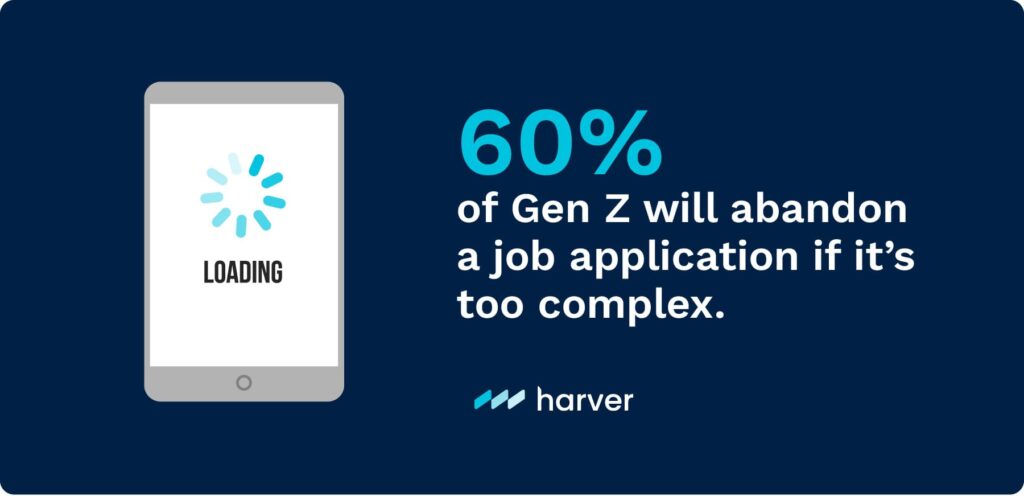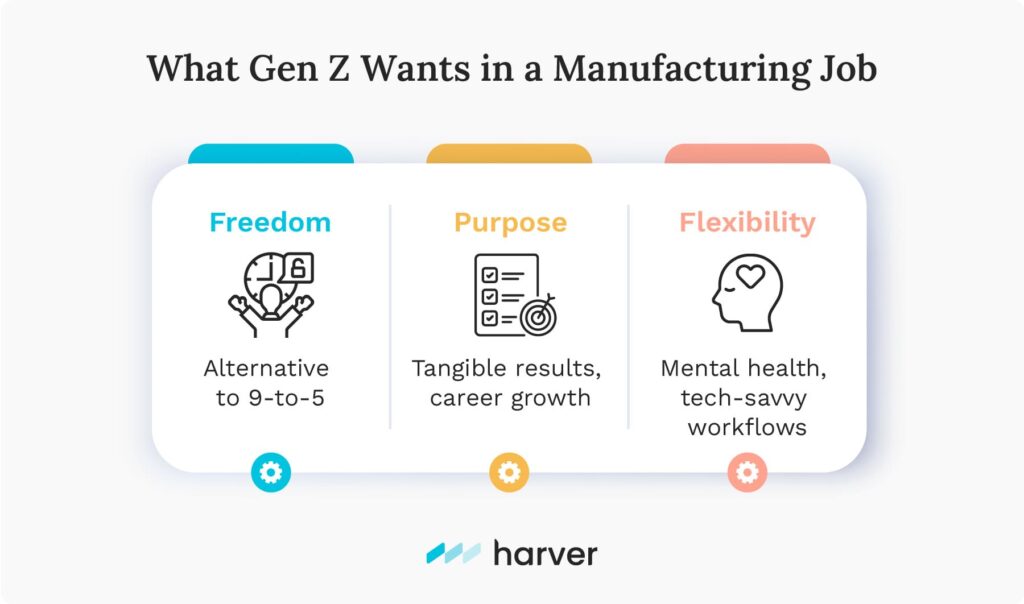For years, manufacturing has struggled to fill open roles. But now, the newest entrants to the workforce might be exactly what the industry needs.
Gen Z (those born between the mid-1990s and early 2010s) has arrived on the job market with a unique mix of career anxiety and blue-collar curiosity. They’re the first generation to grow up fully online, yet they’re skeptical of white-collar work, disillusioned by the 9-to-5, and acutely aware that AI is threatening many entry-level jobs. And they’re responding by exploring something unexpected: the skilled trades.
This is big news for manufacturing.
AI might be advancing fast, but robotics still can’t replicate the kind of hands-on, detail-oriented work that skilled human tradespeople deliver. The Toolbelt Generation sees this, and they’re taking up the challenge. For manufacturers, this represents a massive opportunity, but only if your hiring process is ready.
1. Expect Higher Volumes and Higher Expectations
The growing appeal of manufacturing among Gen Z could drive more applicants to your jobs. That’s a good thing, but only if you’re equipped to handle it. Legacy systems and outdated workflows won’t cut it.

You need modern hiring solutions like Harver’s Smart Job Navigator, which helps you:
- Process high volumes quickly and fairly using automation and AI
- Filter out unqualified candidates early so recruiters can focus on the best-fit talent
- Prevent bias and bottlenecks, ensuring good candidates don’t slip through the cracks
And remember: while this generation may be embracing blue-collar roles, they’re still digital natives. That means:
- They expect fast, intuitive, consumer-grade experiences
- 60% will walk away from overly complex hiring processes
- Mobile-first is a must
To keep them engaged, you need to offer a seamless candidate journey from first click to offer letter. That means branded content, personalized emails, and real-time updates that keep them in the loop.
2. Resumes Are Out. Skills Are In.
Gen Z leaning into highly specialized blue collar jobs, means you’ll need to focus on hiring for particular skills. And resumes just aren’t going to cut it.
A piece of paper can’t tell you whether someone has the skills, mindset, and potential to thrive in your organization. That’s why more employers are shifting toward skills-based hiring (SBH), leveraging modern offerings like Harver’s predictive assessments to provide a deeper understanding of a candidate’s true potential.
The following science-backed tools are critical for effective SBH:
Gamified formats are particularly popular among Gen Z applicants and increase engagement across the board (Harver’s, for instance, have a 98% completion rate).
Some of the most important skills manufacturers should target include:
- Critical Thinking: for responding to problems on the fly
- Communication: to collaborate and troubleshoot effectively
- Attention to Detail: especially in roles with safety or precision risks
- Dependability: self-managed accountability in busy, high-volume environments
- Tech Curiosity: willingness to adapt as machines and processes evolve
Read more about the top skills for success in manufacturing and how to assess them.
3. Your Employer Brand Matters More Than Ever
Why are so many Gen Zers exploring trade careers? For a lot of them, it comes down to freedom, flexibility, and mental health factors that traditional office jobs haven’t always prioritized.

Trade work offers:
- An alternative to the 9-5 grind
- Clear career paths
- Tangible results
- A sense of purpose
That’s a message manufacturing employers can get behind, but you need to tell that story clearly.
Make sure your job descriptions and employee value proposition (EVP) reflect what this generation cares about. Highlight your growth opportunities, values, and benefits. Use branded content, employee testimonials, and transparent communication throughout the hiring journey.
And don’t forget to factor this philosophy into your entire hiring process. From the way you present your job ads to the ease of your application flow, Gen Z is paying attention.
Manufacturing’s Moment Is Here. Don’t Miss It.
The Toolbelt Generation is ready to roll up their sleeves. But if your hiring experience doesn’t meet their expectations or (showcase what makes your company a great place to grow) they’ll move on.
By investing in automated workflows, skills-based assessments, and a thoughtful candidate experience, you can build a stronger, more resilient workforce for the future of manufacturing.
Ready to meet the next generation of makers?


